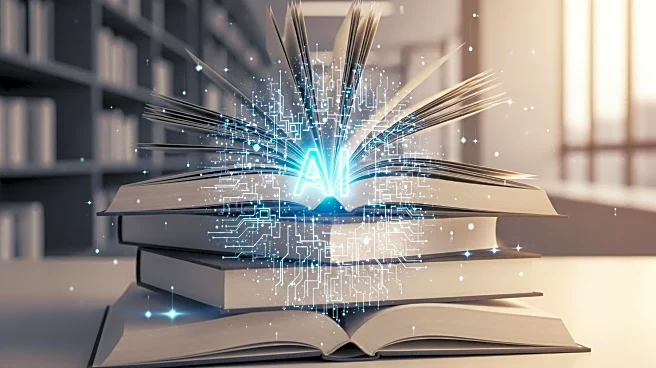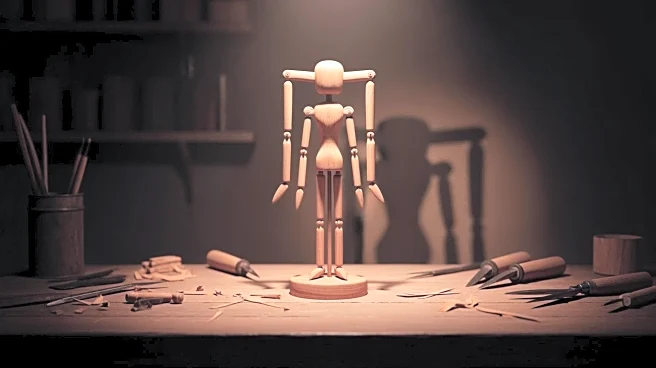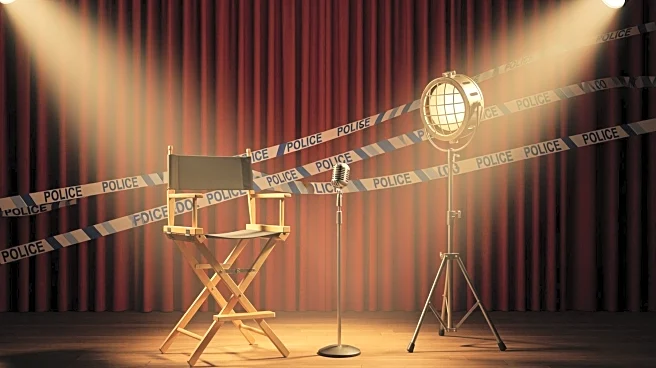What's Happening?
Anthropic, an artificial intelligence start-up, has agreed to pay $1.5 billion to settle a lawsuit filed by authors Andrea Bartz, Charles Graeber, and Kirk Wallace Johnson. The authors accused Anthropic of using their copyrighted works to train its AI models without permission. This lawsuit is part of a larger trend, with over four dozen similar cases filed against AI companies for copyright infringement. These companies, including Anthropic, OpenAI, Meta, and Microsoft, require vast amounts of digital data, some of which is copyrighted, to develop their AI models. While these companies argue that they are legally entitled to use public material without paying for it, authors and other content creators have challenged this claim. Some AI companies have begun signing licensing agreements with news organizations and other copyright holders to legally use their material.
Why It's Important?
The settlement marks a significant moment in the ongoing debate over copyright infringement in the AI industry. It highlights the growing tension between AI companies and content creators over the use of copyrighted material. The outcome of this case could set a precedent for future legal battles, potentially influencing how AI companies source data for their models. This could lead to increased costs for AI companies if they are required to pay for copyrighted content, impacting their business models and innovation strategies. Authors, publishers, and other creators stand to benefit from such settlements, as they seek to protect their intellectual property rights and receive compensation for the use of their work.
What's Next?
Following the settlement, AI companies may need to reassess their data acquisition strategies to avoid further legal challenges. This could involve negotiating more licensing agreements with content creators or developing new methods to source data legally. The legal landscape for AI and copyright is likely to evolve, with more cases potentially reaching settlements or court decisions that could redefine the boundaries of copyright law in the digital age. Stakeholders in the AI industry, including developers, legal experts, and policymakers, will need to closely monitor these developments to adapt to changing regulations and public expectations.
Beyond the Headlines
The settlement raises ethical questions about the balance between technological advancement and the protection of intellectual property rights. It underscores the need for clear guidelines and regulations to ensure that AI development does not come at the expense of creators' rights. The case also highlights the importance of collaboration between AI companies and content creators to foster innovation while respecting legal and ethical standards.









